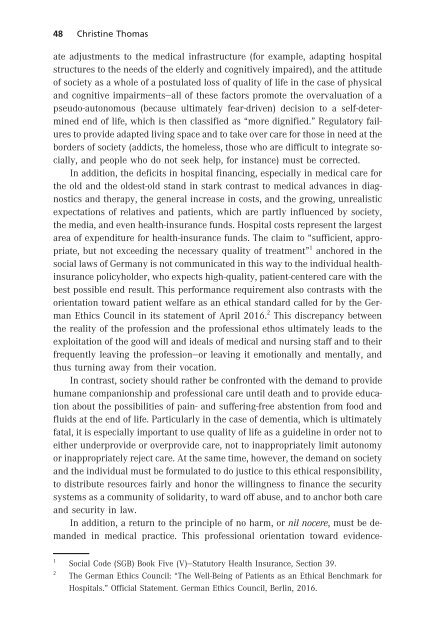Michael Welker | Eva Winkler | John Witte, Jr. | Stephen Pickard (Eds.): The Impact of Health Care (Leseprobe)
Pluralism has become the defining characteristic of many modern societies. Not only a plurality of individual and social claims and activities gain impacts on societal life. A creative pluralism of institutions and their norms profoundly shape our moral commitments and character – notably the family, the market, the media, and systems of law, religion, politics, research, education, health care, and defense. In the theoretical, empirical, and historical contributions to this volume, specialists on medicine, medical ethics, psychology, theology and health care discuss the many challenges that major transformations in their areas of expertise pose to the communication and orientation in late modern pluralistic societies. Contributors come from Germany, the USA and Australia.
Pluralism has become the defining characteristic of many modern societies. Not only a plurality of individual and social claims and activities gain impacts on societal life. A creative pluralism of institutions and their norms profoundly shape our moral commitments and character – notably the family, the market, the media, and systems of law, religion, politics, research, education, health care, and defense.
In the theoretical, empirical, and historical contributions to this volume, specialists on medicine, medical ethics, psychology, theology and health care discuss the many challenges that major transformations in their areas of expertise pose to the communication and orientation in late modern pluralistic societies. Contributors come from Germany, the USA and Australia.
You also want an ePaper? Increase the reach of your titles
YUMPU automatically turns print PDFs into web optimized ePapers that Google loves.
48 Christine Thomas<br />
ate adjustments to the medical infrastructure (for example, adapting hospital<br />
structurestothe needs <strong>of</strong> the elderly and cognitively impaired), and the attitude<br />
<strong>of</strong> society as awhole <strong>of</strong> apostulated loss <strong>of</strong> quality <strong>of</strong> life in the case <strong>of</strong> physical<br />
and cognitive impairments—all <strong>of</strong> these factors promote the overvaluation <strong>of</strong> a<br />
pseudo-autonomous (because ultimately fear-driven) decision to aself-determined<br />
end <strong>of</strong> life, which is then classified as “more dignified.” Regulatory failures<br />
to provide adapted living space and to take over care for those in need at the<br />
borders <strong>of</strong> society (addicts, the homeless, those who are difficult to integrate socially,<br />
and people who do not seek help, for instance) must be corrected.<br />
In addition, the deficits inhospital financing, especially in medical care for<br />
the old and the oldest-old stand in stark contrast to medical advances in diagnostics<br />
and therapy, the general increase in costs, and the growing, unrealistic<br />
expectations <strong>of</strong> relatives and patients, which are partly influenced by society,<br />
the media, and evenhealth-insurance funds. Hospital costs represent the largest<br />
area <strong>of</strong> expenditure for health-insurance funds. <strong>The</strong> claim to “sufficient, appropriate,<br />
but not exceeding the necessary quality <strong>of</strong> treatment” 1 anchored in the<br />
social laws <strong>of</strong> Germany is not communicated in this way to the individual healthinsurance<br />
policyholder,who expects high-quality, patient-centered care with the<br />
best possible end result. This performance requirement also contrasts with the<br />
orientation toward patient welfare as an ethical standard called for bythe German<br />
Ethics Council in its statement <strong>of</strong> April 2016. 2 This discrepancy between<br />
the reality <strong>of</strong> the pr<strong>of</strong>ession and the pr<strong>of</strong>essional ethos ultimately leads to the<br />
exploitation <strong>of</strong>the good will and ideals <strong>of</strong> medical and nursing staff and to their<br />
frequently leaving the pr<strong>of</strong>ession—or leaving it emotionally and mentally, and<br />
thus turning away from their vocation.<br />
In contrast, society should rather be confronted with the demand to provide<br />
humane companionship and pr<strong>of</strong>essional care until death and to provide education<br />
about the possibilities <strong>of</strong> pain- and suffering-free abstention from food and<br />
fluids at the end <strong>of</strong> life. Particularly inthe case <strong>of</strong> dementia, which is ultimately<br />
fatal, it is especially important to use quality <strong>of</strong> life as aguideline in order not to<br />
either underprovide or overprovide care, not to inappropriately limit autonomy<br />
or inappropriately reject care. At the same time, however, the demand on society<br />
and the individual must be formulated to do justice to this ethical responsibility,<br />
to distribute resources fairly and honor the willingness to finance the security<br />
systems as acommunity <strong>of</strong> solidarity, to ward <strong>of</strong>f abuse, and to anchor both care<br />
and security in law.<br />
In addition, areturn to the principle <strong>of</strong> no harm, or nil nocere, must be demanded<br />
in medical practice. This pr<strong>of</strong>essional orientation toward evidence-<br />
1<br />
2<br />
Social Code (SGB) Book Five (V)—Statutory <strong>Health</strong> Insurance, Section 39.<br />
<strong>The</strong> German Ethics Council: “<strong>The</strong> Well-Being <strong>of</strong> Patients as an Ethical Benchmark for<br />
Hospitals.” Official Statement. German Ethics Council, Berlin, 2016.
















